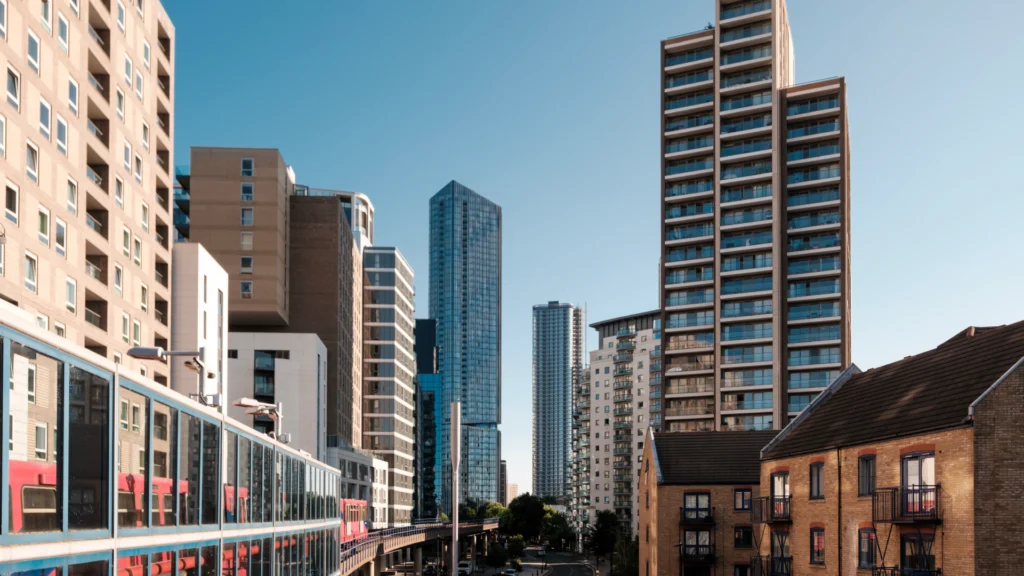How to Stop House Repossession Now






Your complete guide to stopping house repossession
We’ve all seen the mortgage warning: “Your home may be repossessed…” But when you buy a home, it never feels like something that could happen to you.
Yet with rising interest rates and inflation, many homeowners have found themselves in unexpected financial trouble, and facing the real possibility of repossession.
If this sounds familiar, you’re not alone, and we know how stressful and uncertain this time can be. The good news? There are steps you can take to stop repossession, protect your credit score, and regain control of your future.
Repossession follows a set process: letters from your lender after missed payments, a default notice around month two, and potential court action by month three. Acting early makes a big difference.
At Sell House Fast, we’ve helped thousands of homeowners avoid repossession. This guide will give you the key facts and options so you can make informed decisions and move forward with confidence.
What is house repossession?
If you miss several mortgage payments, your mortgage lender may take legal action to take ownership of your property. Usually this process begins only once a homeowner has fallen into significant arrears by failing to make payments on time as per your agreement with your lender.
Repossession is normally a last resort by the lender, when they have tried reaching out to you to get payments back on track. They can then resell the home to recoup their losses.
How many months of mortgage arrears before repossession?
It varies, depending on the lender and on the terms of your mortgage agreement. It might also be affected by whether you have demonstrated your commitment to getting the payments back on track, in which case the lender may give you a bit of a grace period.
It’s common for lenders to begin considering repossession after somewhere between three and six missed monthly repayments.
How does house repossession work?
Thankfully, lenders can’t repossess your home just because you’ve missed a few payments, there’s a legal process they must follow:
- Formal notice: Before taking legal action, your lender must send you a notice explaining your arrears and giving you time to respond or make a repayment plan. This is called the pre-action protocol.
- Court action: If the issue isn’t resolved, the lender can apply to the court for a possession order. You’ll receive a court summons and have the chance to explain your situation.
- Possession order granted: If the court sides with the lender, they’ll be given the legal right to take possession of your home, usually 28 days after the hearing. If you don’t leave, the lender can request an eviction warrant.
- Eviction notice: Once the warrant is approved, you’ll get an eviction date. Bailiffs, usually from the county court, will carry out the eviction.
Why repossession has wider consequences than just losing your home
Being evicted from your home following a repossession can be incredibly difficult emotionally and practically. But it’s far from the only repercussion of this process. You also need to consider:
Damage to your credit score: No matter your reasons for falling behind on mortgage repayments, a repossession puts a huge dent in your credit score. This can make it much harder to get credit in the future, including the mortgage on your next home.
The emotional toll: The repossession process is intensely stressful. It can worsen existing poor mental health, and actually create them too. You can be feeling the mental shockwaves long after you’ve moved out.
The impact on your family: It’s not just your mental health and wellbeing that suffers during a repossession. It can turn family life upside down, which results in stress and uncertainty for all family members, even your four-legged friends.
The ongoing financial burden: If your lender can’t recoup their full loan through the repossession, you may be shouldered with the shortfall. This ‘new’ debt is likely to be with you for a long time, and affect your ability to afford life going forward.
Of course, these consequences will be different for everyone, and they may have bigger impacts on some people than they will on others. But it’s important to keep them in mind if you’re considering how to stop repossession.
How do I stop house repossession?
It may feel like once the ball is rolling there’s no stopping it — but that’s not the case. Here are some strategies to stop repossession, or at least buy yourself some time so you can get in the best position.
Start a conversation with your lender
In any situation, communication is a two-way street, and it’s best to be honest. It’s no less true when you’re exploring how to stop home repossession. It’s crucial to reach out to your lender and talk about your options. These might include a repayment plan, switching to interest-only payments for a while, or taking a payment holiday.
All of these can help make the cost of homeownership lower in the shorter term, meaning that if your financial difficulties are temporary, you can catch up when things are better again.
Stopping house repossession requires proactive measures and exploring various options.
Get independent financial advice
This guide covers a lot of bases with general advice and potential strategies — still, your financial situation is unique. So, it’s well worth having a one-to-one chat with a professional financial advisor. They can give you a fresh, informed perspective on your situation, specifically your finances. They can spot opportunities and advantages that others cannot.
They can help you explore options that you might otherwise know nothing about. They can also help you negotiate with your lender, build a realistic budget and point you towards financial support or alternative housing options. Overall, they can empower you to make the right decisions for you with confidence.
Sell your house fast
You’re likely to pull out all the stops to keep your home and stop repossession — but it doesn’t always make sense. In fact, when you sit down and reflect, you might realise you’re ready for a change anyway. Sometimes, even when you fight and win against the threat of repossession it can leave you with mixed feelings about your home, and a tinge of sadness.
So if keeping up with mortgage payments is unfeasible, or if you decide you’d rather have a fresh start, choosing to sell your house fast for cash might be the best solution. At Sell House Fast, we offer a fast and hassle-free house buying service. We can complete the sale as quickly as you require, allowing you to settle your mortgage arrears fast.
We will buy your house, no matter the condition. Plus, with us you can sell your house for free, as we have no estate agent fees, legal fees or other costs. Our smooth process gives you speed and certainty, as well as providing you with the funds to pay off your mortgage and avoid repossession. If you’re committed to exploring all options, that should include getting a figure from us so you know what you could receive if you sold this way.
Resources
Seeking independent advice is crucial when facing repossession. Organisations like StepChange, Citizens Advice, and the National Debtline can help you create a plan to manage your debt and negotiate with your lender. The Financial Conduct Authority (FCA) also offers guidance on your rights.
When facing house repossession, getting independent advice is crucial. Several organizations offer free support to help you manage debt and negotiate with your lender:
- StepChange Debt Charity – Provides comprehensive debt advice and solutions.
- Citizens Advice – Offers guidance on your rights and how to navigate repossession proceedings.
- National Debtline – Free advice for dealing with personal debt issues.
- Financial Conduct Authority (FCA) – Regulates mortgage lenders and provides resources on consumer protections.
Reaching out to these organisations can help you understand your options and take appropriate action.
What is the Pre-Action Protocol?
Homeowners are protected by law during the repossession process. The Pre-Action Protocol ensures lenders must consider reasonable alternatives before proceeding to court. You also have the right to challenge any unfair practices.
House repossession is not an immediate process; it follows a structured timeline that gives you opportunities to act. Initially, lenders will contact you if you miss a single mortgage payment. By the second month, you’ll typically receive a default notice, warning you of the risk of repossession. If payments are still not made by the third month, the lender may begin court proceedings. Acting early can prevent the situation from escalating.
It’s important to know your rights when facing repossession. The Pre-Action Protocol, enforced by the courts, ensures that lenders must explore reasonable alternatives before pursuing legal action. Lenders are obligated to give you time to find a solution and must handle your situation fairly. If they fail to follow this protocol, you may have grounds to challenge the repossession in court. Always seek legal advice to understand how these protections apply to your case.
Remember: You have more power than you think
The threat of house repossession is incredibly daunting. For lenders and the courts, it’s just everyday business, but for you it’s deeply personal. It can feel unequal, a David-and-Goliath struggle of sorts.
But you have more power, and more options, than you might initially think. The main things to keep in mind are to get advice and support from those in the know, keep an open communication with your lender, and explore all options so you’re fully informed.
Sell House Fast understands the urgency of your situation. Our fast, reliable service and empathetic team are here to help. Reach out today and discover how working with a cash buyer for houses can help you take control of your situation.


